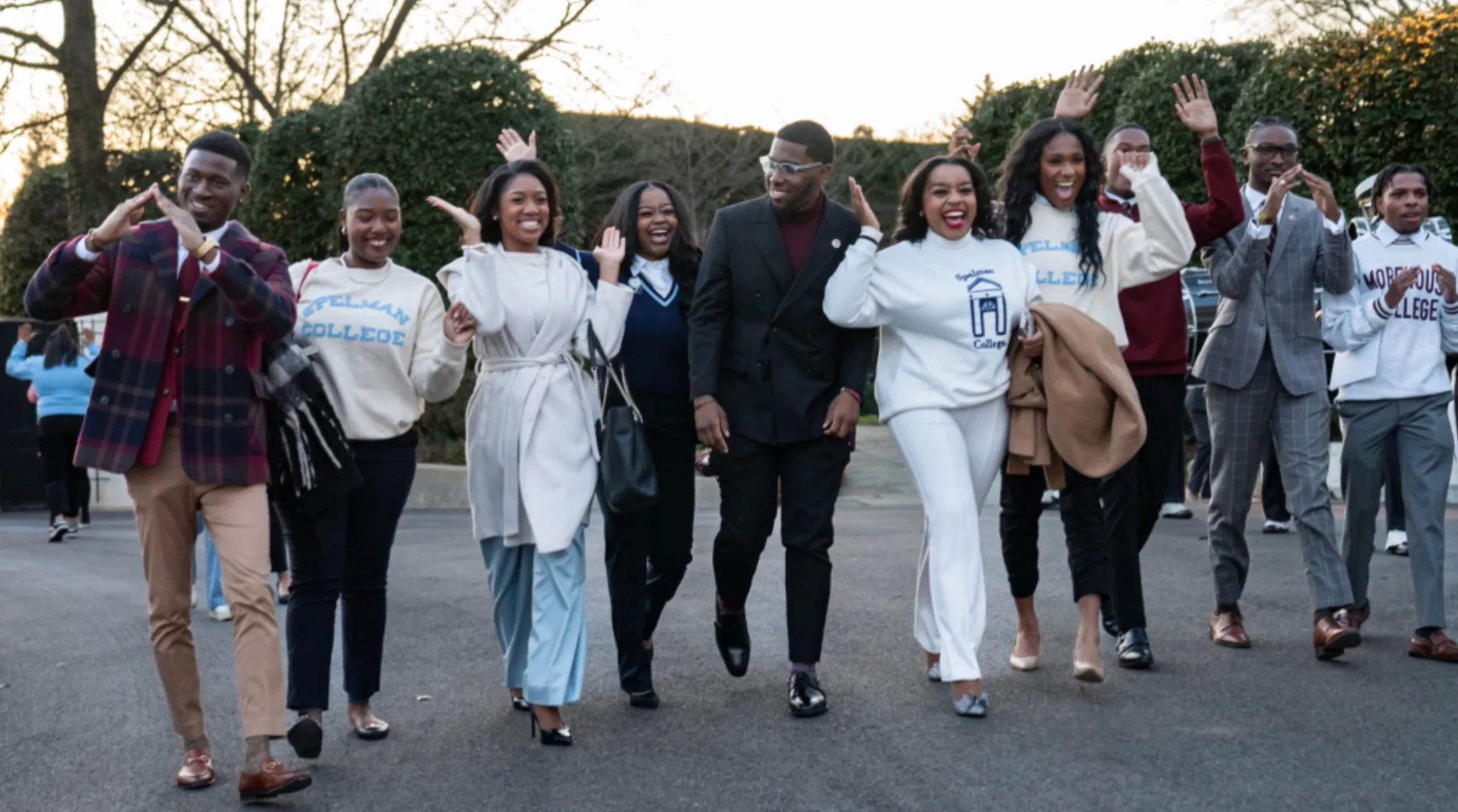By Quintessa Williams
As a tribute to the legacy and ongoing impact of Historically Black Colleges and Universities (HBCUs), Vice President Kamala Harris hosted a reception to mark the conclusion of Black History Month. On Thursday, February 29th, the event held at the Vice Presidential residence witnessed the gathering of 100 HBCU students, alumni, and notable figures all celebrating the profound impact these institutions have on shaping the nation’s future.
In her speech during the celebration, Harris emphasized the crucial role of HBCUs in American society while commending the students and pioneers for their contributions.
The reception was attended by distinguished guests from academia, government, politics, and entertainment sectors. Among them were Dr. Dietra Trent, an alumna of Hampton University and Executive Director of the White House Initiatives on HBCUs, Keshia Knight Pulliam, an actress and alumna of Spelman College, and Terrance J, TV personality and alum of NC A&T University.
The event celebrated the crucial role of HBCUs in nurturing future leaders and their legacy.
The reception held recently not only paid homage to the historical significance of Historically Black Colleges and Universities (HBCUs), but also served as a reminder of their critical role in shaping the present and future societal landscape.
Given that there have been recent attempts to restrict educational access for minority students and censor discussions on Black history through legislative efforts and educational policies, the event highlighted the need for HBCUs to remain accessible and vibrant.
The high-profile celebration of Black History Month signifies an unwavering commitment to empowering and supporting Black Americans through education.
The occasion not only commemorated the achievements of Historically Black Colleges and Universities (HBCUs) in the past but also anticipated the future contributions of these institutions and their alumni. At a time when the significance of HBCUs is both challenged and celebrated, such gatherings serve as a reminder of the lasting impact and pivotal role of HBCUs in American history, and their potential to shape future generations.

